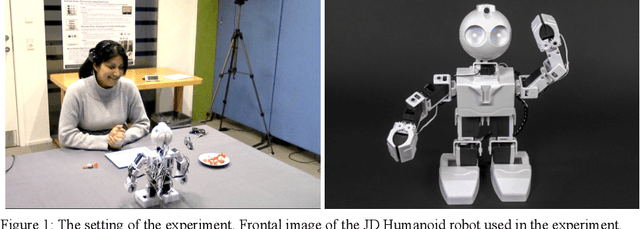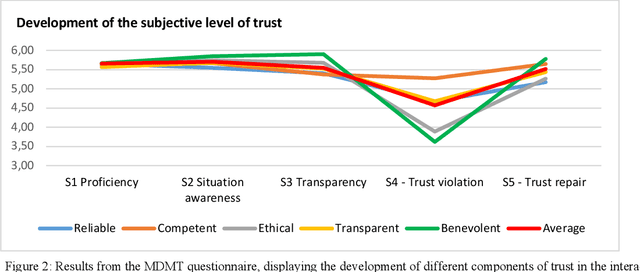Matouš Jelínek
Developing Autonomous Robot-Mediated Behavior Coaching Sessions with Haru
Feb 18, 2024


Abstract:This study presents an empirical investigation into the design and impact of autonomous dialogues in human-robot interaction for behavior change coaching. We focus on the use of Haru, a tabletop social robot, and explore the implementation of the Tiny Habits method for fostering positive behavior change. The core of our study lies in developing a fully autonomous dialogue system that maximizes Haru's emotional expressiveness and unique personality. Our methodology involved iterative design and extensive testing of the dialogue system, ensuring it effectively embodied the principles of the Tiny Habits method while also incorporating strategies for trust-raising and trust-dampening. The effectiveness of the final version of the dialogue was evaluated in an experimental study with human participants (N=12). The results indicated a significant improvement in perceptions of Haru's liveliness, interactivity, and neutrality. Additionally, our study contributes to the broader understanding of dialogue design in social robotics, offering practical insights for future developments in the field.
* Accepted as Late Breaking Report (LBR) at the 19th Annual ACM/IEEE International Conference on Human Robot Interaction (HRI '24)
Trust regulation in Social Robotics: From Violation to Repair
Apr 20, 2023

Abstract:While trust in human-robot interaction is increasingly recognized as necessary for the implementation of social robots, our understanding of regulating trust in human-robot interaction is yet limited. In the current experiment, we evaluated different approaches to trust calibration in human-robot interaction. The within-subject experimental approach utilized five different strategies for trust calibration: proficiency, situation awareness, transparency, trust violation, and trust repair. We implemented these interventions into a within-subject experiment where participants (N=24) teamed up with a social robot and played a collaborative game. The level of trust was measured after each section using the Multi-Dimensional Measure of Trust (MDMT) scale. As expected, the interventions have a significant effect on i) violating and ii) repairing the level of trust throughout the interaction. Consequently, the robot demonstrating situation awareness was perceived as significantly more benevolent than the baseline.
 Add to Chrome
Add to Chrome Add to Firefox
Add to Firefox Add to Edge
Add to Edge